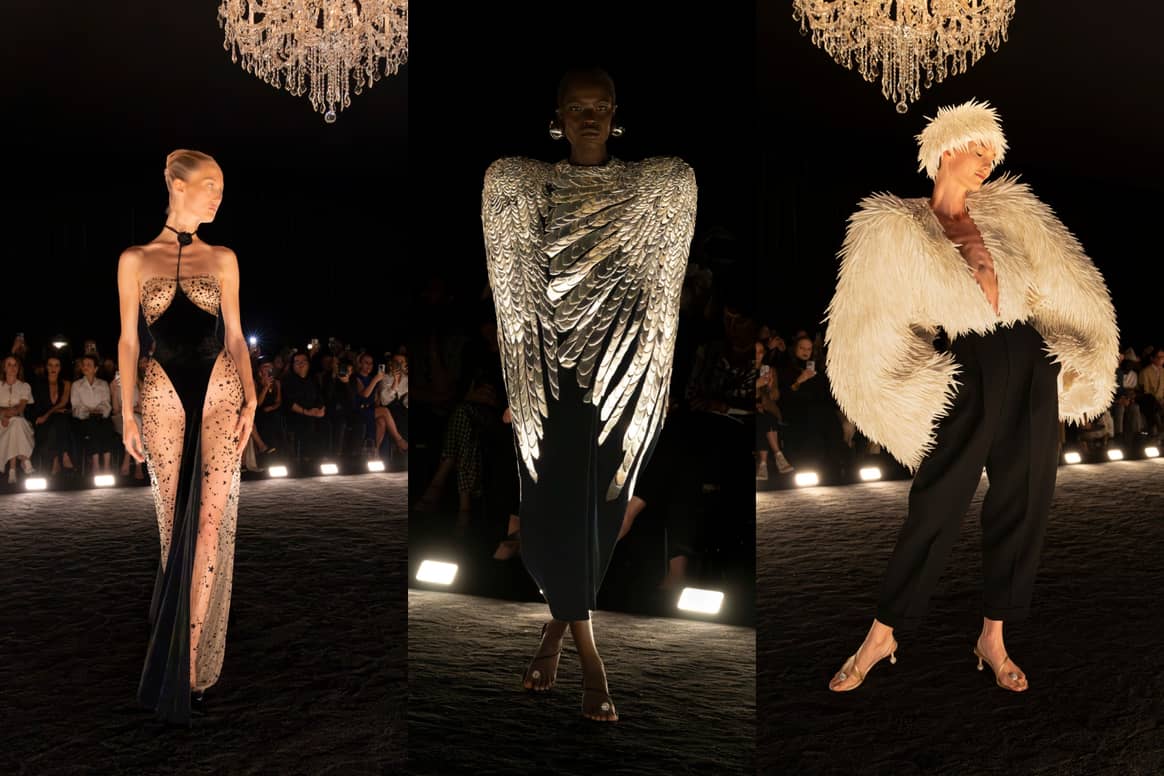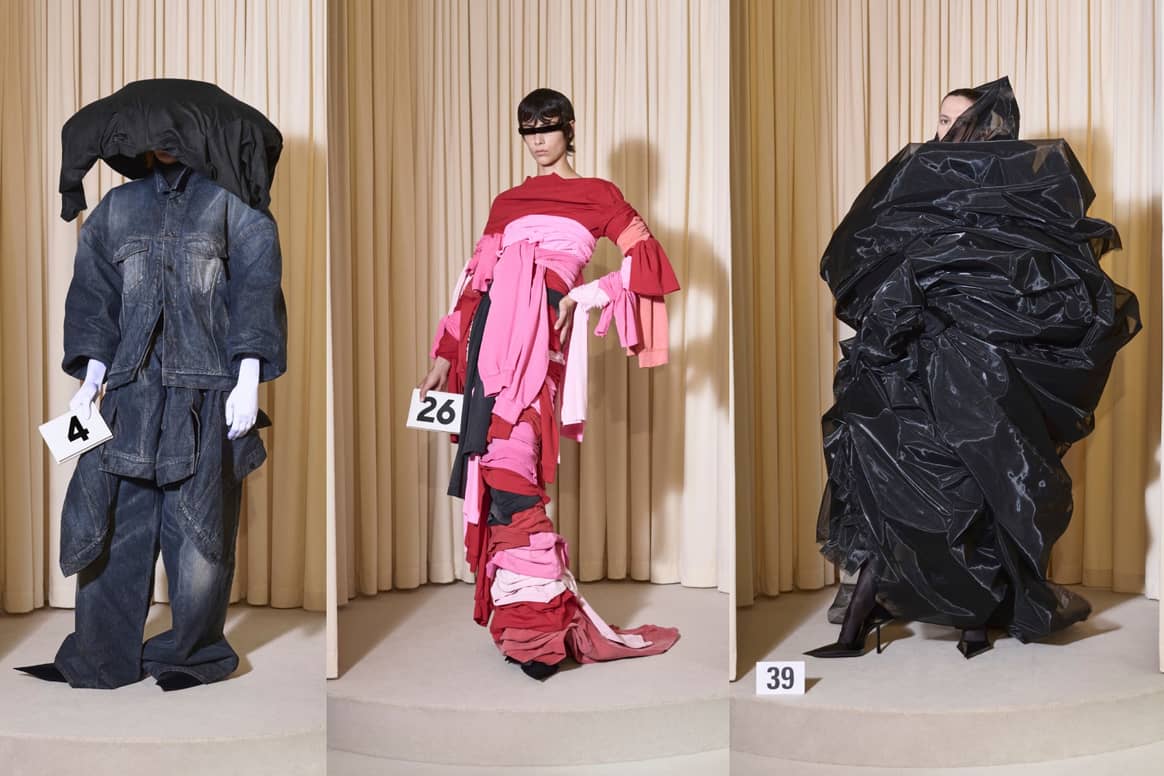Engaged in the clothing industry for 20 years.

Recollection, relevance and reality at the Haute Couture Week in Paris
In many ways, the fall/winter 2024 haute couture season was defined by its absences. There were the usual no-shows from brands like Valentino and Fendi, the lack of a creative director at Chanel and, perhaps most surprisingly, the absence of many of the media-grabbing stunts that have often overshadowed the craftsmanship that couture once stood for in recent seasons.
A sense of reality had already started to creep onto the runways at January’s Paris Haute Couture Week, but now, days before a snap election called by President Emmanuel Macron and in the midst of final preparations for the upcoming Olympic Games, most couturiers erred on the side of restraint. Admittedly, within the context of couture week, restraint takes on a new, gilded and sequined form. But there also seemed to be a return to the roots of the rarefied craft — even if questions remain over whether that is still relevant today.
New perspectives and old masters
The first signs of a return to a time when couture was a more intimate affair, reserved for a fashion house’s most valued clients, could be seen at Schiaparelli. Designer Daniel Roseberry, whose collection for the French house opened the season, eschewed gimmicks for once and instead let his undeniable artistry and the house’s heritage do the talking.
A far cry from the robot babies or the life-size animal heads of previous collections, Roseberry’s fall/winter 2024 collection was inspired by the duality of Tchaikovsky’s famous ballet, Swan Lake. The designer took inspiration from a feathered look worn by the house’s founder in the 1940s, which was itself a homage to ballerina Anna Pavlova and her iconic role in The Dying Swan. Almost 90 years later, Roseberry took things a step further, paying tribute to both “the swan and the phoenix” — as he described Schiaparelli and her tireless ability to reinvent herself in his show notes.

Visually, the concept translated into 31 silhouettes, among which a black velvet cape with chrome embroidery, a sheer-top column dress and black tuxedo trousers worn with a feathered white top stood out. To top it all off, the collection was shown in near darkness, with the runway only sparsely lit as models slowly made their way around, giving the audience ample time to admire all the exquisite details on display.
While Roseberry surprised with his newfound restraint, the big surprise at Chanel came not during couture week itself, but shortly before, when the house announced that creative director Virginie Viard would be leaving the house without a final show. Instead, the dramatic and decidedly ‘Lagerfeldian’ fall/winter couture collection was designed by what the press release referred to as the “Fashion Creation Studio.”

Staged in the Palais Garnier, the collection was haunted not by the famous phantom said to inhabit the opera house, but by the brand’s late creative director, Karl Lagerfeld. High ruffled collars, dramatic capes, feathers, tweed, taffeta and lace met more sober and sensible tweed skirt suits and dresses. While some of the collection veered into the realm of the extravagant, other looks were, at least visually, reminiscent of the brand’s regular ready-to-wear offer.
It was a collection that perhaps raised questions about the limits and relevance of couture today, something that creative director Demna Gvasalia openly addressed backstage at his couture show for Balenciaga.
“Nobody really needs couture, to be honest,” the designer told several news outlets after his show. And while the statement was mostly in reference to his likely soon-to-be infamous “disappearing” couture dress, a garment made from 47 meters of black nylon that was simply draped over a model’s body, the rest of his collection also raised questions.

Gvasalia reintroduced couture to the storied house in 2021, and while he has remained faithful to the architectural codes of the house’s founder Cristóbal Balenciaga for several seasons, fall/winter 2024 saw an almost unmissable dose of streetwear enter the couture mix. In some ways, his latest collection resembled the work that the designer’s fans have come to know him for — traces of his Vetements days included. Much like at Chanel, the lines between the craftsmanship essential to couture and ready-to-wear became blurred at Balenciaga — at least visually.
For his fourth couture collection, Gvasalia, who has consistently challenged the status quo in fashion and luxury, surprised with a collection filled with upcycled sweatshirts and football jerseys transformed into ball gowns. He also showed evening gowns made from plastic bags, upcycled sweatshirts, football jerseys and denim jackets, while still remaining somewhat faithful to the silhouettes that Balenciaga once used to wow his couture clientele. In many ways, the pieces ultimately invited the audience to question their value and the value of couture — something that, amidst inflation, crises and war, is perhaps the most timely message Gvasalia has put forward in a while.
Does the future of couture have a name?
Nicolas di Felice, who took the helm of Jean Paul Gaultier’s couture collection as a guest designer this season, showed that couture, in the right hands, can reveal a previously unseen side to a brand and a designer. The designer, who is currently creative director at French house Courrèges, made his couture debut with this collection. But already, there is speculation that this moment could be the start of his tenure at the helm of a couture house, with several currently looking for new creative directors.

Regardless of future possibilities, in the here and now, Di Felice presented a Jean Paul Gaultier couture collection that was a far cry from what most guest designers have shown in the past. Gaultier’s signature cone bras and sailor stripes were nowhere to be seen, making way instead for what could be considered a minimalist take on the designer’s legacy. Corsetry and plenty of hook-and-eye closures referenced the master corsetier, while the collection’s seductive, sheer and highly sophisticated pieces bore the clear mark of what Di Felice fans have come to know and love.
It was a clever move and undoubtedly exactly what Gaultier had in mind when he stepped down from his role and made way for young talents to try their hand at haute couture. Because as the 40-year-old Di Felice took his bow at the end of the show, there was little doubt that he — and likely many other “young talents” — could bring a fresh perspective and relevance to haute couture.
This article originally appeared on FashionUnited.DE. Translation and edit by: Rachel Douglass.


